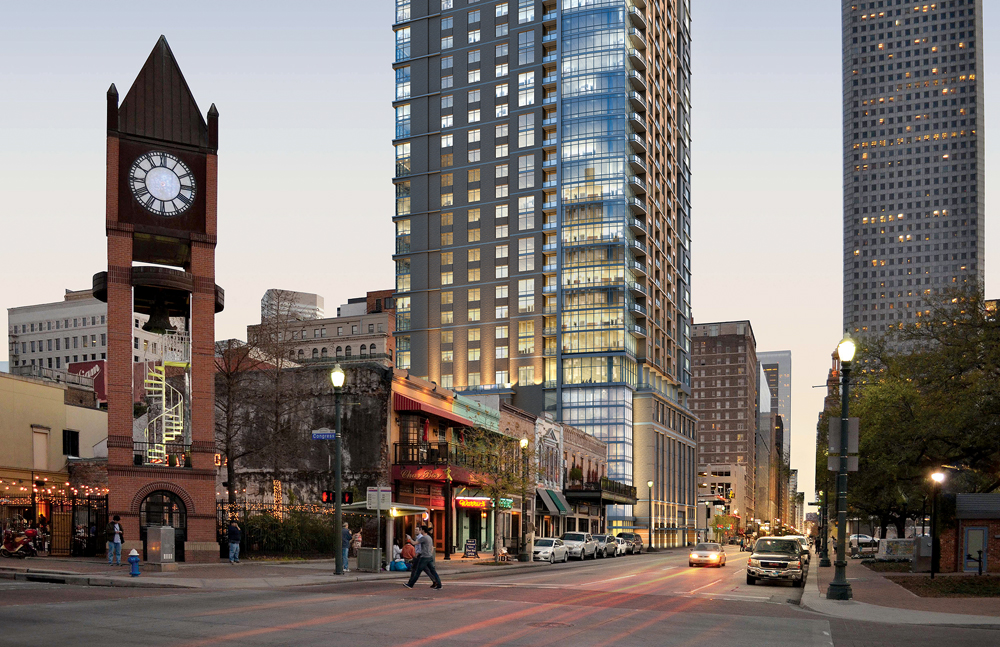The conventional wisdom about renters is that most of them would prefer to own their homes, and that many eventually will buy a house.
However, a survey of more than 25,000 adults—about one-third renters, two-thirds homeowners—found the renters to be more burdened by debt than homeowners and severely short of emergency savings. For many renters, a 20% down payment to secure a mortgage is a pipe dream; for some, even the government’s recent plan to bring back mortgages with 3% down payments might be a bridge too far.
The Financial Industry Regulatory Authority (FINRA), a nonprofit oversight organization authorized by Congress, conducted the study in 2012, and released its results last October.
For more on the multifamily housing sector, read BD+C's Special Report: "5 intriguing trends to track in the multifamily housing game"
In 2012, 36% of Americans were renters. The survey found them to be younger than homeowners; only 39% were married, compared to 63% of owners. Nearly three-fourths of renters (74%) had household incomes below $50,000, compared with 41% of owners.
The survey found renters to be less educated, and nearly twice as likely to be unemployed or temporarily laid off, than owners. Forty-two percent of renters are minorities, compared with 29% of owners.
About one in four renters (24%) said they found it “very difficult” to pay their bills, versus 12% of owners. Nearly half of renters (48%) said paying their bills was “somewhat difficult,” compared to 39% of homeowners.
Renters are burdened by a surfeit of debt. The survey found that renters were nine percentage points more likely than homeowners to carry credit card debt and nine percentage points more likely to carry student debt.
The difference was even more drastic for medical debt: 17 percentage points. (At the time the survey was taken, 68% of the renters said they had medical coverage, versus 85% of homeowners, but this was before the Affordable Care Act took effect.)
The scariest finding was that renters had practically no savings and live from paycheck to paycheck. Fifty-eight percent said they probably or definitely couldn’t come up with $2,000 in 30 days to cover an unexpected expense, compared to 29% of homeowners. Only 22% of renters (versus 50% of owners) said they had enough savings to cover three months’ expenses.
Related Stories
MFPRO+ News | Jun 3, 2024
Seattle mayor wants to scale back energy code to spur more housing construction
Seattle’s mayor recently proposed that the city scale back a scheduled revamping of its building energy code to help boost housing production. The proposal would halt an update to the city’s multifamily and commercial building energy code that is scheduled to take effect later this year.
Resiliency | Jun 3, 2024
Houston’s buyout program has prevented flood damage but many more homes at risk
Recent flooding in Houston has increased focus on a 30-year-old program to buy out some of the area’s most vulnerable homes. Storms dropped 23 inches of rain on parts of southeast Texas, leading to thousands of homes being flooded in low-lying neighborhoods around Houston.
MFPRO+ New Projects | May 29, 2024
Two San Francisco multifamily high rises install onsite water recycling systems
Two high-rise apartment buildings in San Francisco have installed onsite water recycling systems that will reuse a total of 3.9 million gallons of wastewater annually. The recycled water will be used for toilet flushing, cooling towers, and landscape irrigation to significantly reduce water usage in both buildings.
MFPRO+ News | May 28, 2024
ENERGY STAR NextGen Certification for New Homes and Apartments launched
The U.S. Environmental Protection Agency recently launched ENERGY STAR NextGen Certified Homes and Apartments, a voluntary certification program for new residential buildings. The program will increase national energy and emissions savings by accelerating the building industry’s adoption of advanced, energy-efficient technologies, according to an EPA news release.
MFPRO+ News | May 24, 2024
Austin, Texas, outlaws windowless bedrooms
Austin, Texas will no longer allow developers to build windowless bedrooms. For at least two decades, the city had permitted developers to build thousands of windowless bedrooms.
Mass Timber | May 22, 2024
3 mass timber architecture innovations
As mass timber construction evolves from the first decade of projects, we're finding an increasing variety of mass timber solutions. Here are three primary examples.
Mixed-Use | May 22, 2024
Multifamily properties above ground-floor grocers continue to see positive rental premiums
Optimizing land usage is becoming an even bigger priority for developers. In some city centers, many large grocery stores sprawl across valuable land.
MFPRO+ News | May 21, 2024
Massachusetts governor launches advocacy group to push for more housing
Massachusetts’ Gov. Maura Healey and Lt. Gov. Kim Driscoll have taken the unusual step of setting up a nonprofit to advocate for pro-housing efforts at the local level. One Commonwealth Inc., will work to provide political and financial support for local housing initiatives, a key pillar of the governor’s agenda.
MFPRO+ News | May 21, 2024
Baker Barrios Architects announces new leadership roles for multifamily, healthcare design
Baker Barrios Architects announced two new additions to its leadership: Chris Powers, RA, AIA, NCARB, EDAC, as Associate Principal and Director (Healthcare); and Mark Kluemper, AIA, NCARB, as Associate Principal and Technical Director (Multifamily).
MFPRO+ News | May 20, 2024
Florida condo market roiled by structural safety standards law
A Florida law enacted after the Surfside condo tower collapse is causing turmoil in the condominium market. The law, which requires buildings to meet certain structural safety standards, is forcing condo associations to assess hefty fees to make repairs on older properties. In some cases, the cost per unit runs into six figures.

















